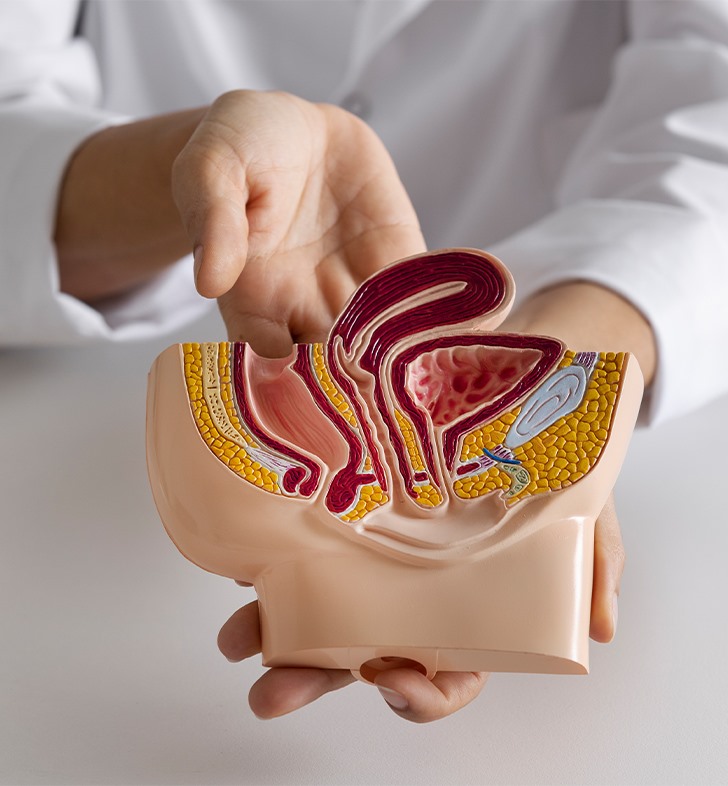
Bladder and Bowel Dysfunction in Multiple Sclerosis (MS)
How common are bladder and bowel dysfunction with multiple sclerosis (MS)? Impairments in bladder function with multiple sclerosis (MS) are common and may affect up to 78 to 90 percent of patients during the course of MS. The prevalence of bowel dysfunction in MS is estimated to be about 68 percent of patients. Bladder and bowel symptoms are relatively common in MS and can be treated. Goals for bladder and bowel management include maximizing independence and preventing incontinence and complications.
How can bladder function be affected by multiple sclerosis (MS)? As with other MS symptoms, the kinds of bladder problems vary from person to person and can change over time. People may: Have trouble controlling the release of urine (incontinence) Experience a sense of having to go right away (urgency) Experience frequent urges to urinate (frequency) Have difficulty in starting to urinate or in sustaining a steady stream (hesitancy) In fact, some people may experience urinary retention and will require some form of intermittent catheterization. All these symptoms usually indicate problems in the functioning of the muscles that control urination, although urinary tract infection (UTI) must be eliminated as a cause. An appointment with an advanced practice nurse or physician assistant to initially (begin to) assess the bladder symptoms is helpful. Initial bladder assessment includes obtaining a thorough history from the patient and focusing on the primary concern. You may be asked to urinate during the time of the appointment. The amount of urine may be measured. Please come to the appointment well hydrated with the need to urinate. The specimen will be checked for a urinary tract infection through laboratory urinalysis (UA) and culture and sensitivity (C&S). Other tests may be done if needed. Some recommendations for treating bladder symptoms can be made after the initial assessment. However, if we are not able to help with your bladder symptoms or if you continue to experience frequent bladder infections you may be referred to a urologist (a specialist in the urinary system). The urologist can help evaluate the cause of the problem through evaluation of the upper and lower urinary tracts. Other treatment options may include Botox® or surgical interventions. Do not try to self-treat your bladder problems by drinking less fluid! This can lead to constipation or urinary tract infections.
How can bowel function be affected with multiple sclerosis (MS)? Bowel dysfunction is also a common symptom for patients with MS. One study of 77 patients with clinically definite MS showed that bowel problems are not associated with bladder dysfunction, patient's age, degree of disability, or duration of disease. The most common bowel complaint from a person with MS is constipation, but the most distressing bowel complaint is probably that of involuntary bowel/fecal incontinence. Because MS interrupts or slows the transmission of signals to and from the brain, the electrical impulses to the muscles that are involved in emptying your bowel can become disrupted. Depending on your particular bowel problem, helpful suggestions can be made. General interventions for bowel dysfunction include: Education about the causes of bowel dysfunction Encouraging dietary changes to include more fiber and fluid Consulting with your healthcare provider to adjust medication regimens that may be contributing to bowel dysfunction Establishing a regular bowel routine, individualized to the patient Encouraging regular physical activity Bladder and bowel symptoms are common in MS and can be effectively managed. Speak with your healthcare provider about what you can do to help keep these symptoms under control.
What are some bladder management
points to remember if I have multiple sclerosis (MS)?
Adequate fluid intake is 1½-2 quarts
of fluid a day. The urge to urinate comes about 1½ -2 hours after drinking
something.
Caffeine, aspartame, and alcohol are
all bladder irritants.
Smoking also is irritating to the
bladder.
Limiting fluid is harmful.
It is not normal to leak urine, wake
up more than once at night to urinate, or to have frequent urinary tract
infections.
Bladder infections in people with MS
may result in an increase in MS symptoms, spasticity, and fatigue.
Plan of action
Drink fluids all at once (drink 6 to
8 ounces at a time). If you sip, sip, sip you will feel the urge to urinate
frequently. Try to go about 1½ to 2 hours after you drink.
Stop drinking fluids about 2 hours
before bedtime; urinate right before bedtime.
If you tend to get frequent bladder
infections you are probably not emptying your bladder completely.
Taking cranberry pills may keep your
urine more acidic and decrease the bacteria in your urine.
What are some bowel management
points to remember if I have multiple sclerosis?
The goal is a comfortable bowel
movement (BM) either every day, every other day, or every 2 to 3 days. For
regular bowel movements you need fluid (1½ to 2 quarts a day), fiber (20 to 30
grams a day) and activity.
One-third of a cup of Fiber One®,
All-Bran® or 100% Bran Buds® gives you half the fiber you need for the day.
Greasy foods, spicy foods, or food
intolerances (for example, lactose intolerance) may cause loose stool and may
result in involuntary bowel movements.
Plan of action
Eat regularly for regular bowel
habits. Plan for a bowel movement each day about ½ hour after eating or
drinking something warm (bowel activity is naturally increased at this time).
Sit on the toilet about 10 minutes, and try to have a BM. You may want to
gently rock back and forth on the toilet. If nothing happens, leave the
bathroom and try again later.
Use a suppository to help stimulate
bowel activity. (It takes about 20 minutes for a suppository to work.)
Occasionally, it might help to take milk of magnesia or citrate of magnesia to
stimulate bowel activity.
It may take two to three months to
establish a regular bowel regimen.